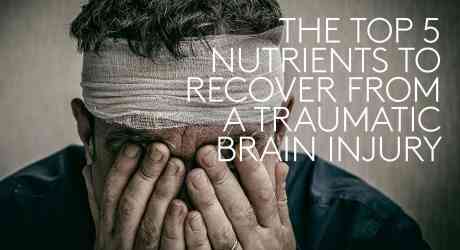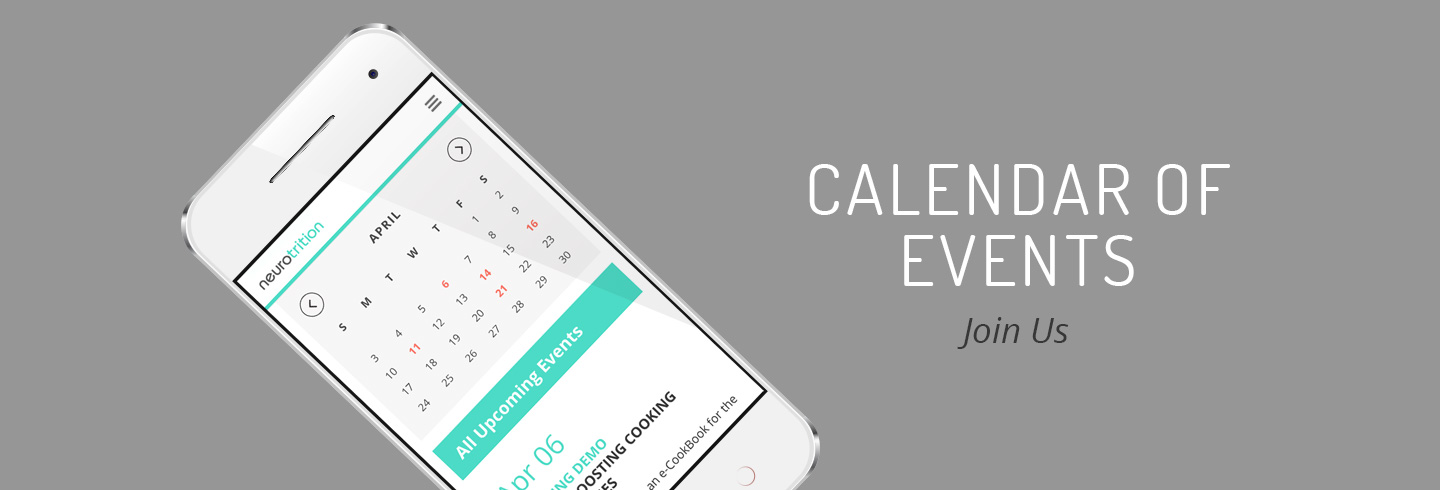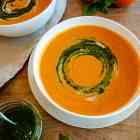Blood Sugar Balance: Bringing Nutrition Into Addiction Recovery

Nutrition is an important, albeit under utilized tool in addiction recovery that can and should be used in the fight against relapse. To understand the importance of a healthy recovery diet and what it looks like you have to first understand a little bit about the brain biology behind addiction and the mechanisms that play a crucial role in whether someone stays clean or relapses. Drug and alcohol rehab statistics show that the percentage of people who will relapse after a period of recovery ranges from 50-90%, and the vast majority relapse within the first 48 hours of leaving a rehab facility. The number one reason for relapse appears to be cravings, either as part of acute withdrawal symptoms or as a result of chronic stress and sleep deprivation. There are many things an individual can do to increase their chances of success for sustained sobriety and with adequate support and willingness, diet should be one of them. A healthy, whole foods based diet that targets blood sugar balance in the body and the brain can play a key role in preventing relapse by reducing withdrawal symptoms, especially those vicious cravings.
Blood Sugar & The Brain
Blood sugar is defined as the concentration of glucose (sugar) in the blood. The glucose transported through the blood supplies energy to all the cells in the body and this is especially important when it comes to the brain. The brain controls all the bodily functions from breathing and digesting food to thinking and controlling emotions. No big deal, right?
The brain is composed of billions of cells called neurons, which do all the talking for the brain. They work day and night, even while you’re sleeping. Sounds exhausting, right? Well, it is! Your brain needs lots of energy to keep it going. Neurons are fuelled by glucose, or blood sugar, which your body makes from the carbohydrates in the foods you eat. However, neurons can’t store glucose so they need a constant supply to function properly. In other words, your brain can’t work properly without balanced blood sugar—which is imperative for everything! Unfortunately, prolonged substance abuse, dependance and addiction wreak havoc on your blood sugar biology, and gradually make it incredibly difficult if not near-impossible for your brain to talk properly to itself, to your body, and to others. It’s a difficult imbalance to correct, making recovery hard, especially without the support of a brain rebuilding diet targeting this neurobiology.
Prolonged substance abuse, dependance and addiction wreak havoc on your blood sugar biology, and gradually make it incredibly difficult if not near-impossible for your brain to talk properly to itself, to your body, and to others.
Substance Abuse & The Brain
Drugs and alcohol affect the brain by hijacking its communication system and interfering with the way it processes information by creating an imbalance that impacts neurons' ability to function properly. The result is often something called neuroglylcopenia.
Neuroglycopenia refers to a shortage of glucose (glycopenia) in the brain, usually due to hypoglycemia (low blood sugar), a common result from years of substance abuse, dependance and addiction. Hypoglycemia is often responsible for many of the debilitating symptoms that addicts face during recovery, such as anxiety, depression, irritability, mood swings and, most importantly, cravings. These symptoms are due to the fact that glycopenia affects the function of neurons, and alters brain function and behaviour. This is, in part, the brain altering biology that creates the seemingly insatiable, unrelenting cravings individuals in recovery find the most difficult symptom to overcome.
Hypoglycemia is often responsible for many of the debilitating symptoms that addicts face during recovery, such as anxiety, depression, irritability, mood swings and, most importantly, cravings.
During recovery your brain goes from being continuously bathed in sugar from substance abuse to becoming so deprived that the neurons can no longer communicate properly. No longer rewarding their brain with drugs and alcohol, those in recovery turn to a more socially acceptable addiction–things such as sugar and caffeine (which activate the same “pleasure” or “motivation” centres in the brain that drugs and alcohol do). We all need to eat and drink, right? So what's the problem? Swapping one dependency for another activates the same neural circuits and simply perpetuates the cycle of addiction, serving as a crutch but not a solution. Instead of addressing the root cause by correcting the imbalance in blood sugar and the brain, the recovering individual has simply applied a bandaid. When life's stressors inevitably return, they run the risk or ending up right back where they started. This is why addressing the underlying biology of addiction, at least in part through nutritional support, is imperative in promoting a successful recovery that actively targets reducing the risk of relapse.
The Role of Nutrition
Relying on a diet of sugar, processed foods and stimulants, such as caffeine and nicotine, to rescue someone in recovery from cravings is at best temporarily easing symptoms of withdrawal. In the longer term, it is just prolonging and perpetuating the addiction cycle by keeping withdrawal symptoms, including cravings - and the risk of relapse - a scary part of everyday. Blood sugar imbalances are so prevalent in individuals struggling with substance abuse, and this blood sugar rollercoaster is making it all that much harder to stay clean. Addressing recovery by abstaining from drugs and alcohol, with the support of a balanced diet comprised of high quality protein, healthy fats, complex carbohydrates, and key blood sugar balancing micronutrients can help keep cravings and mood swings in check. For some individuals, nutrition may be the tool that could make the difference between temporary recovery or sustained sobriety.
4 Nutrition Tips To Aid Successful Recovery
1. Postpone Your Coffee
Try and hold on till after breakfast, if at all, for your caffeine fix. Starting off the day with a cup a’ joe will just send your blood sugar way up, with an inevitable crash. The crash is what will make alarm bells sound in your brain’s addiction centres, and what will make you start craving the substance you were addicted to. If you have some food in your belly before you drink your coffee the jolt of caffeine will be limited, as it will slow its release into the blood stream to keep you and your body more balanced.
2. Break the Fast
You don’t think breakfast got the “most important meal of the day” reputation for nothing do you? When you wake up in the morning you are breaking from a fast. Get it? Break-fast? When struggling to stay sober, breaking the fast becomes even more important because the longer you go with out eating, the lower your blood sugar dips and the greater the chance you will get neuroglycopenia and subsequent cravings. It is important to consume breakfast within 1 hour of rising to break the fast and raise your blood sugar back to normal.
3. A Balanced Breakfast
A blood sugar balancing breakfast is important, and should consist of high quality protein, healthy fat and complex carbs. Think egg and avocado toast or oatmeal topped with nuts and seeds. How about a yam omelette? Or something even simpler and liquid if you’re not a fan of breakfast, and if solid food makes you nauseous in the morning or you are dealing with nausea as part of your withdrawal. Starting your day out with a meal like this will create a steady, sustained blood sugar that sets your brain up for a nice balanced glucose source all day, while keeping your mood and energy up—and cravings at bay.
4. Snacks, Snacks, Snacks
Don’t stop at breakfast. Make sure to eat small healthy protein rich snacks frequently between meals. We recommend not going longer than 3 hours between eating when in recovery. Try an apple with nut butter and cinnamon, a big bag of trail mix, or hard boiled eggs. It’s easy once you get the hang of it (set the alarm on your phone, our clients love this little reminder until they get into the groove). This will support that steady balanced blood sugar you began your day with, and minimize the likelihood of cravings.
- References
-
- Jain, H., Beriwal, S., & Singh, S. (2002). Alcohol induced ketoacidosis, severe hypoglycemia and irreversible encephalopathy. Medical Science Monitor, 8(11):CS77-CS79.
- Perlmuter, L.C., Flanagan, B.P., Shah, P.H., & Singh, S.P. (2008). Glycemic control and hypoglycemia: Is the loser the winner? Diabetes Care, 31(10): 2072–2076.
- Mysels, D.J., & Sullivan, M.A. (2010). The relationship between opioid and sugar intake: Review of evidence and clinical applications. Journal of Opioid Management. 6(6): 445–452.
- Volkow, N.D., Wang, G.J., Fowler, J.S., & Telang, F. (2008). Overlapping neuronal circuits in addiction and obesity: evidence of systems pathology. Philosophical Transactions of the Royal Society B: Biological Sciences, 363(1507): 3191–3200.
- D’Souza, M.S., & Markou, A. (2011). Neuronal mechanisms underlying development of nicotine dependence: Implications for novel smoking-cessation treatments, Addict Science & Clinical Practice, 6(1): 4–16.
- Adinoff, B. (2004). Neurobiologic Processes in Drug Reward and Addiction. Harvard Review of Psychiatry, 12(6): 305–320.










